

Filter
- Abnormal Body Condition
- Adult Cat
- Adult Dog
- Body Condition Assessment
- Brain & Cognitive Disorders
- Cardiovascular Disorders
- Cat Allergen Management
- Changing Diets
- Choosing a Pet Food
- Cognition Assessment
- Dental/Oral Health Disorders
- Dermatological Disorders
- Excess Body Weight
- Fecal Scoring Assessment
- Feeding Management
- Feeding Philosophies
- Gastrointestinal Disorders
- Healthy Cognition in Aging
- Heart Health
- Hepatic Disorders
- Highly Active and Working Dogs
- Hydration
- Immunity
- Indoor Cats
- Ingredients in Pet Food
- Kitten
- (-) Lower Urinary Tract Health
- Making a Diet Recommendation
- Microbiome
- Muscle Condition Assessment
- Musculoskeletal Disorders
- Nutrients
- (-) Nutritional Assessment
- Nutrition Conversation Tips
- Pancreatic Disorders
- Pet Food Labels
- Practice Scenario
- Puppy
- Renal & Urinary Disorders
- Senior Cat
- Senior Dog
- Treats & Supplements
Results
-
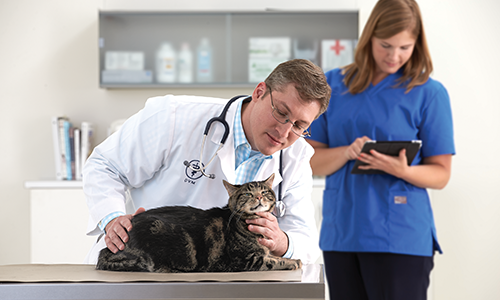
Nutritional Assessment
Taking a Good Diet History
The only way to know what each patient really eats is to ask ꟷ and document the information in the medical record.
1 min to 5 min
-
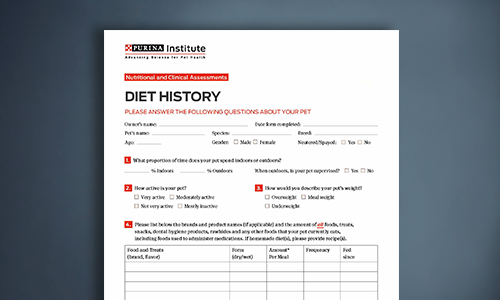
Nutritional Assessment
Screening Diet History Form
This short, screening diet history form is a practical, easy-to-use document that can help clients provide important information about their pets’ diets.
1 min to 5 min
-
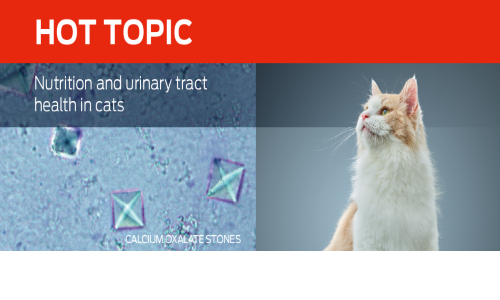
Lower Urinary Tract Health
Nutrition and Urinary Tract Health in Cats
Feline lower urinary tract diseases (FLUTDs) have a multi-factorial etiology. Diet can play an important role as part of the overall management.
6 min to 10 min
-

Nutritional Assessment
Nutrition-Related Risk Factors
Pets should be evaluated for the presence of nutrition-related risk factors as part of a screening nutritional assessment.
1 min to 5 min
-

Nutritional Assessment
Nutritional Assessment Is an Iterative Process: Screening Evaluation
Assessing a patient’s nutritional status is a recurring process that entails more than taking a diet history.
1 min to 5 min
-

Nutritional Assessment
Nutritional Assessment Is an Iterative Process: Extended Evaluation
An extended nutritional evaluation is important for pets at risk for nutrition-related problems.
1 min to 5 min
-
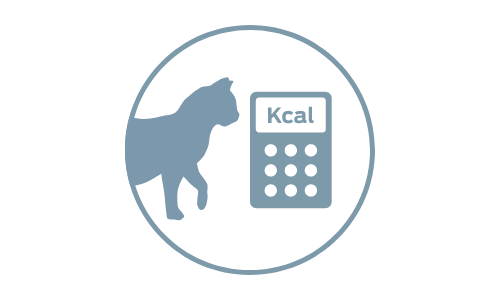
Nutritional Assessment
MER Calculator for Cats
Using your patient’s age group with current weight and body condition score, this feeding calculator will provide estimated daily caloric needs to reach or maintain ideal body condition.
1 min to 5 min
-
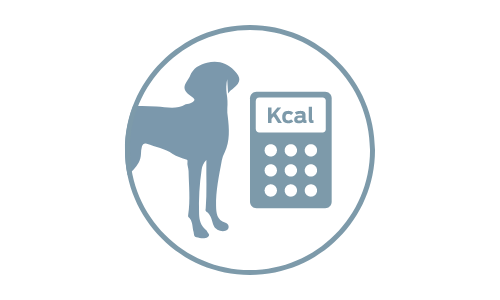
Nutritional Assessment
MER Calculator for Dogs
Using your patient’s age group with current weight and body condition score, this feeding calculator will provide estimated daily caloric needs to reach or maintain ideal body condition.
1 min to 5 min
-
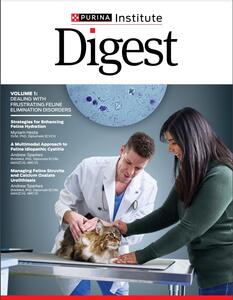
Lower Urinary Tract Health
Volume 1: Dealing With Frustrating Feline Elimination Disorders
Learn about common causes of feline lower urinary tract disease and important strategies to manage these cases, including nutrition, environmental modification, and increasing hydration.
16 min to 20 min
